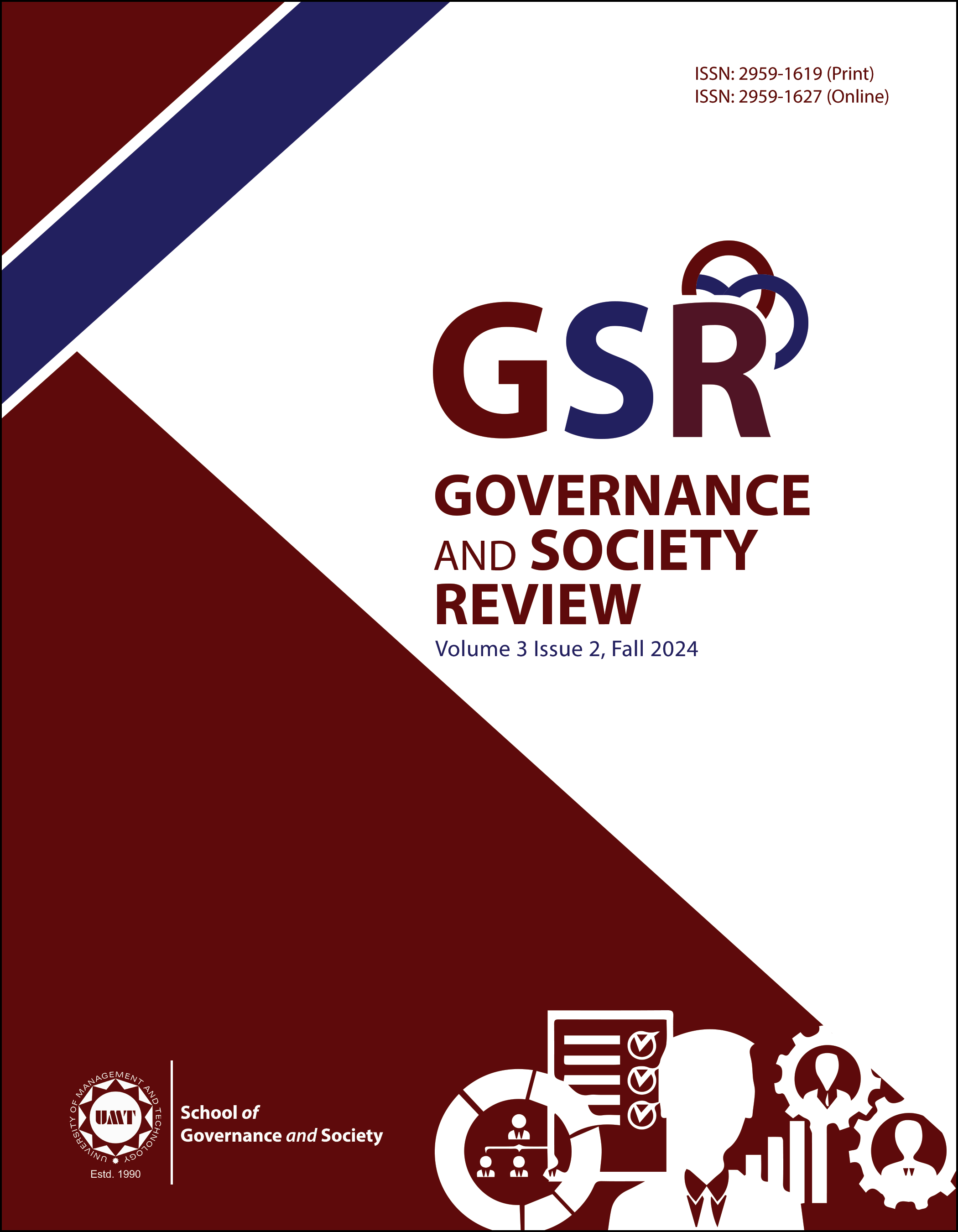Implementation of National Agency for Science, Engineering, Infrastructure, and Innovation (NASENII) Programme for Economic Development: A Study of Nigeria
Abstract
 Abstract Views: 0
Abstract Views: 0
The current study examines the implementation of National Agency for Science, Engineering, Infrastructure, and Innovation (NASENII) Programme for economic transformation in Nigeria. The study adopted systems theory as theoretical frame work and adopted survey and documentary research design. Primary and secondary method of data collection was used to collect data and was analysed through statistical technique. The results revealed that the National Agency for Science, Engineering, Infrastructure, and Innovation (NASENII) has successfully implemented the national policy on science, technology, and innovation. The agency has achieved its goals by fostering a robust innovation ecosystem, strengthening Nigeria's science, technology, and innovation capabilities to support the evolution of a modern economy. These efforts have contributed to job creation, wealth generation, reduced reliance on imports, increased exports, and overall national development. Additionally, NASENII has laid the groundwork for sustainably driven scientific and technological innovations to flourish in the future. Inadequate fund and raw materials for production are the major challenges affecting the productivity of NASENII in Nigeria. The study recommends that Federal Government should vote for more funds in order to purchase raw materials for production in order to stimulate the growth of SMEs, agriculture, and power generation to reduce poverty.
Downloads
References
Adeoti, J. (2019). Innovation in Nigeria: Progress, challenges, and prospects. Journal of African Development, 21(2), 45–63.
Adewoye, O. O. (2006). Advanced manufacturing technology and innovation for endogenous development and global competitiveness [Paper presentation]. Proceedings of Advanced Manufacturing Technology and Innovation Workshop. Abuja, Nigeria.
Basu, R. (2004). Public administration: Concepts and theories. While House Publication.
De Giorgi, E., & Grimaldi, S. (2015). The Italian political system in the last twenty years: Change, adaptation or unfinished transition? Contemporary Italian Politics, 7(1), 3–9. https://doi.org/10.1080/23248823.2014.1002246
Dror, Y. (1983). Public policy making re-examined. Routledge.
Easton, D. (1957). An approach to the analysis of political systems. World Politics, 9(3), 383¬¬¬¬¬¬¬¬¬¬¬¬¬¬¬¬¬¬¬¬¬¬¬–400.
Egonmwan, J. A. (1991). Public policy analysis: Concepts and applications. S.M.O Aka and Brothers Press.
Ewesuedo, D. B. (2011). Evaluation of the national policy on science and technology and innovation in Nigeria: A study of national research institute for chemical technology and innovation (NARICT) and Institute for Agricultural Research (IAR) Zaria (1998-2008) [Doctoral dissertation, Ahmadu Bello University]. Open Repository, Ahmadu Bello University. https://kubanni.abu.edu.ng/items/fe77b459-1bf9-4870-af1f-9fc9d6801ded
Haruna, M. S. (2015, November 11). Science, technology and innovation and national development [PowerPoint presentation]. National Agency for Science and Engineering Infrastructure. http://dx.doi.org/10.13140/RG.2.2.13113.29286
Ibrahim, M., & Adamu, I. (2021). Local content development in Nigeria's science and technology sector: A review of NASENI's role. African Research Review, 15(2), 1–15.
International Council for Science. (2002). Science and technology for Sustainable Development. https://council.science/wp-content/uploads/2017/05/Rainbow-series-Vol9.pdf
Koontz, H., O'donnell, C., & Weihrich, H. (1980). Management. McGraw-Hill Companies.
Mashi, S. A., Inkani, A. I., & Yaro, A. (2014). An appraisal of the role of science and technology in promoting national development efforts in Nigeria. The International Journal of Engineering and Science, 3(2), 56–67.
Okoli, F. C. (2002). Public administration in Nigeria: Nature, principles, and application. John Jacob's Classic Publishers.
Olaopa, O. R. (2011). The politics of local government financing in Southwestern Nigeria, 1999–2009 [Unpublished doctoral dissertation]. University of Kwazulu Natal, South Africa.
Olaopa, O. R., Akindele, S. T., & Hassan, O. M. (2011). Science and technology research: Repositioning the thinking of policymakers in Nigeria: Research notes/commentaries. African Journal of Science, Technology, Innovation and Development, 3(1), 204–227.
Oyelaran-Oyeyinka, B. (2020). Industrialization and innovation in developing economies. Palgrave Macmillan.
Oyeyinka, B. (2021). Science, technology, and innovation policy in Nigeria: An assessment. African Journal of Science, Technology, Innovation, and Development, 13(4), 481–496. https://doi.org/10.1080/20421338.2020.1861234
Salami, R., & Soltanzadeh, J. (2012). Comparative analysis for science, technology and innovation policy; Lessons learned from some selected countries (Brazil, India, China, South Korea and South Africa) for other LdCs like Iran. Journal of Technology Management & Innovation, 7(1), 211–227. http://dx.doi.org/10.4067/S0718-27242012000100014
Sani, N. J., Abarshi, R., & Haruna, M. S. (2014). Examined science and technology and innovation as a major tool for sustainable development (A case study of National Agency for Science and Engineering Infrastructure (NASENII). International Journal of Advanced Studies in Engineering and Scientific Inventions, 2(1), 57–65.
Siyanbola, W., Adeyeye, A., Olaopa, O., & Hassan, O. (2016). Science, technology and innovation indicators in policy-making: The Nigerian experience. Palgrave Communications, 2(1), Article e16015. https://doi.org/10.1057/palcomms.2016.15
Copyright (c) 2024 Musa Zakari , Yemi Ogulela , Nwamaka P. Ibeme , Mark Ochala and Usman I. Ayitogo

This work is licensed under a Creative Commons Attribution 4.0 International License.







